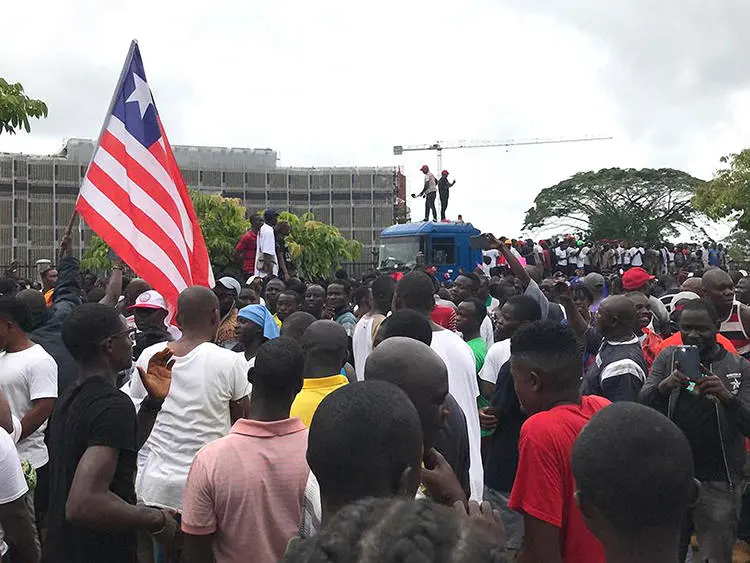Monrovia, Liberia – On June 7, 2018, Liberians took to the streets in a massive demonstration against the government of then-President George Weah. The protesters, driven by frustration over economic mismanagement, corruption, and a lack of basic services, demanded change and accountability. Leading these protests were figures who promised a new dawn for Liberia, advocating for transparency, economic reforms, and social justice.
Fast forward six years, and those very protest leaders are now in power. However, their tenure has been marred by the same issues they once rallied against, leading to widespread disappointment and a sense of betrayal among the populace.
During the June 7 protests, the rallying cry was clear: the Weah administration was failing the people. Protesters cited skyrocketing inflation, unpaid civil servant salaries, and pervasive corruption as key grievances. They accused Weah of enriching himself and his close associates while ordinary Liberians struggled to make ends meet. The protest leaders, now government officials, promised to rectify these issues and bring about a new era of prosperity and good governance.
Today, those promises remain largely unfulfilled. The current administration, led by President Joseph Boakai, is criticized for lacking a coherent development agenda and failing to address the very problems they once vehemently opposed.
“The leaders we believed in and supported have let us down,” says Esther Johnson, a market vendor in Monrovia. “They were supposed to be different, but now we see the same corruption, the same neglect. It feels like nothing has changed.”
One of the most glaring failures of the Boakai administration is the absence of a clear governmental agenda. Unlike previous administrations that presented strategic plans like Ellen Johnson Sirleaf’s Poverty Reduction Strategy and George Weah’s Pro Poor Agenda for Prosperity and Development, Boakai’s government has yet to unveil a comprehensive development framework. This has led to a perception of aimlessness and lack of direction, frustrating citizens who were expecting decisive action and clear policies.
“Where is the roadmap for our country’s development?” questions Mohammed Kamara, a teacher in Buchanan. “We heard all these grand promises, but six months in, there is no plan. It’s disheartening.”
Moreover, the administration has been plagued by allegations of appointing unqualified individuals to key positions, further eroding public trust. Accusations of corruption have also surfaced, reminiscent of the very issues that spurred the June 7 protests.
“The corruption is still here, just with different faces,” laments Grace Doe, a nurse in Gbarnga. “We thought these leaders would clean up the system, but it feels like they are just continuing the same old practices.”
As public dissatisfaction grows, the once hopeful and energized supporters of the protest leaders are now expressing their disappointment. The sentiment on the streets is one of disillusionment, as many feel that the sacrifices made during the protests have been in vain.
“It’s a bitter pill to swallow,” says Samuel Taylor, a student at the University of Liberia. “We fought for change, but the change we got is not what we envisioned. Our leaders need to remember why we put them in power.”
The Boakai administration’s failure to deliver on its promises underscores the complexities and challenges of governance. While the road ahead remains uncertain, one thing is clear: the hopes and aspirations of the Liberian people cannot be ignored. The new leaders must swiftly address these grievances and live up to their commitments, or risk facing the same protests and public outcry that brought them to power in the first place.

